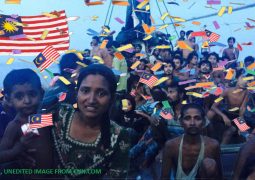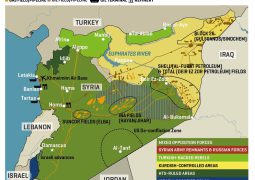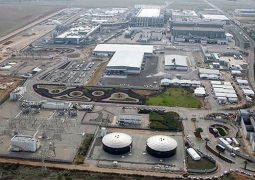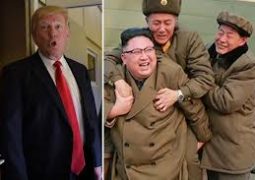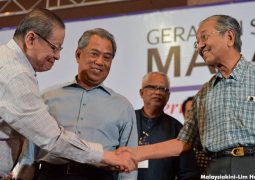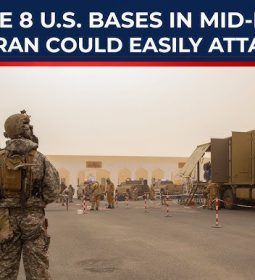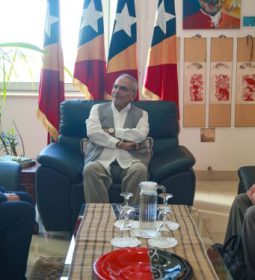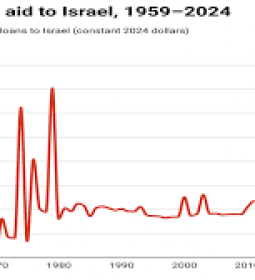Is India’s Kashmir move an attempt to shift its Muslim demographic?
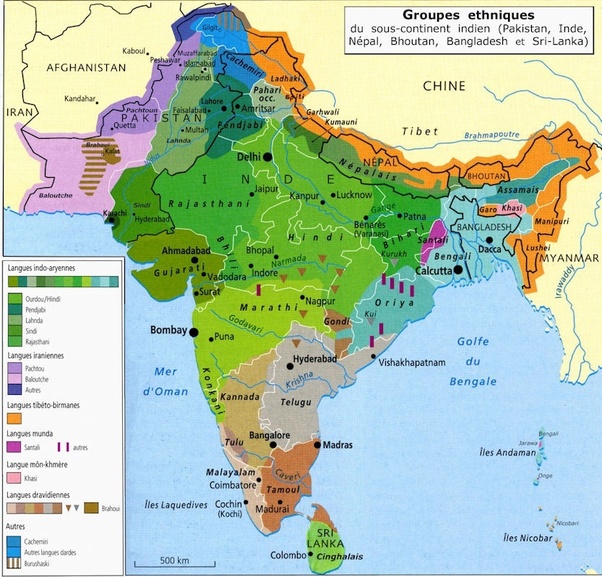
- The fear Muslim numbers will overtake Hindus in certain parts of the country is an old clarion call of Narendra Modi’s BJP and its base
- Critics fear Kashmiris are being reduced to a minority in their own state as the BJP tries to ramp up numbers and support there
Soumya Shankar
Indian security forces personnel patrol the streets in Srinagar after the government scrapped Kashmir’s special status. Photo: Reuters
Since New Delhi’s announcement that Kashmir’s autonomy would be revoked, critics have suggested the region’s original Muslim-majority residents could be reduced to a minority, invoking comparisons to the West Bank or the Chinese model in Xinjiang that pushed Han Chinese into the region.
By scrapping Articles 370 and 35A of the constitution, the complex state will become two centrally administered Union Territories in
India’s northernmost region – Jammu & Kashmir, and Ladakh. Among other changes, Indians from outside the region will be able to buy land or permanently settle in the Kashmir Valley.
India’s Home Minister Amit Shah said the decision to scrap the state’s special privileges was aimed solely at the national integration of the region, which would further develop the restive state of 12.5 million people. Kashmir, at the centre of a long-running territorial dispute between India and
Pakistan, has been trapped in a decades-long insurgency that has killed at least 40,000 people.
New Delhi’s move was celebrated by not just the rank and file of the ruling party, but by a few major opposition parties in India as well. These included some prominent members of the Indian National Congress, creating a rift within the chief opposition party.
Pakistan’s Prime Minister Imran Khan said New Delhi’s decision to revoke the article was an attempt to change the demography of Muslim-majority Kashmir, which was a “war crime” under the Geneva Conventions. He has downgraded diplomatic ties with India and is rallying for support from countries like Malaysia and Turkey to take the matter to the United Nations Security Council. Kashmir has been under lockdown by Indian military forces to prevent protests.
In response to Khan, Communist Party of India (Marxist) Politburo member Brinda Karat said at a New Delhi protest that was jointly organised by five parties from the Left, all of them critics of the current government, that it was Khan and the Pakistani military who had also been “gravely responsible” for the “very serious situation” in Kashmir, aiding numerous militant strikes from across the border that had disrupted the lives of Kashmiris.
In making this decision, Modi was merely fulfilling poll promises made by his Bharatiya Janata Party (BJP) during the recently concluded general elections.
Kashmir has previously featured prominently in the demographic narratives of the Hindu nationalist party. Playing on the fear that Muslims will overtake Hindus in certain strategic pockets of the country is an old clarion call of the BJP and its support base. Currently, along India’s other border with Muslim-dominated Bangladesh in the Northeast, a citizen’s list is underway that has declared thousands of Muslims to be foreigners. The list, called the National Citizen’s Register, has also excluded some Hindus who are Indian citizens. Kashmir, however, is a different story.
The BJP cannot strip the Valley’s Muslim population of Indian citizenship – a raging local militancy lasting for three decades has demanded just that. Opponents of the government fear the larger move to “integrate” Kashmir into India by jeopardising a historical constitutional link between New Delhi and the region is a leaf out of the BJP’s demographic playbook.
While the BJP earlier talked about granting full statehood to Kashmir, granting it the status of a centrally administered union territory is a sure demotion Mohamad Junaid, Kashmiri anthropologist
“The main agenda [behind this decision] was to ensure that the state government and the elected representatives of Kashmir don’t have a say in who could purchase land or settle down in Kashmir and how Kashmiri land can be utilised,” said Mohamad Junaid, Kashmiri anthropologist and a critic of India’s position in the region.
Furthermore, tensions following the removal of Article 35A, which expressly allowed the government of Kashmir to determine “permanent residents” of the state, have been exacerbated by its division. The upper Himalayan region of Ladakh will have no legislature at all, and Jammu & Kashmir, even though it possesses a legislature, will be rendered toothless compared with other Indian states.
“While the BJP earlier talked about granting full statehood to Kashmir, granting it the status of a centrally administered union territory is a sure demotion,” said Junaid, who teaches anthropology at the Massachusetts College of Liberal Arts.
The question of land ownership, law and order will thus fall directly under the purview of New Delhi, rendering almost the entire gamut of current Kashmiri leadership close to be inconsequential. “This will concretise the fears Kashmiris have expressed for a very long time that the BJP wants to push Indians to settle in Kashmir from the mainland, taking the Kashmir issue towards a forceful demographic solution,” Junaid added.
Kashmir critics fear there is no guarantee under the new system that even as they are faced with an influx of people from other parts of India, they would be ruled by a state government that is representative of the Kashmiri people.
For critics, the parallels to the West Bank or Xinjiang are ominous. “I don’t think Kashmiris are xenophobic or against the idea of people from India coming in. it is a matter of numbers right now,” Junaid said.
On the morning of August 7, University of Delhi professor Apoorvanand joined hundreds of other protests in New Delhi, demanding the revocation of the government’s decision to scrap articles 370 and 35A.
“In a parliamentary democracy, all you need is numbers,” said Apoorvanand, who also writes on political affairs. Kashmir is the only state in India where Muslims constitute an overwhelming numerical majority. “For the BJP and its goals towards securing a Hindu nation, even to have a state where Muslims outnumber Hindus is an unimaginable threat,” he said.
For the BJP and its goals towards securing a Hindu nation, even to have a state where Muslims outnumber Hindus is an unimaginable threat Apoorvanand, University of Delhi professor
Making Muslim numbers insignificant would effectively mean lesser Muslim representation in Parliament. “If you achieve this through delimitation and slow violence, you already have a Hindu rashtra [rule] village by village,” Apoorvanand added.
Analysts like him believe Article 370 was an impediment to this path. With the BJP achieving a thumping majority in both houses of Parliament, such unilateral decisions became not just possible, but an effective route to its goals.
The BJP’s long-standing desire to bifurcate the state has its roots in the demographic wrestling match between Hindu-dominated Jammu, where the BJP has amassed increasing influence, and Muslim-dominated Kashmir. Jammu has always played second fiddle in the state’s political dynamic. In the former state legislature, it had 37 seats, while Kashmir accounted for 46. Whichever party won Kashmir tended to rule Jammu & Kashmir.
For the most part, the state has seen power shift between the warring NC and PDP. The Indian National Congress leader Ghulam Nabi Azad is the only politician from Jammu to have ever been the state’s chief minister, and with the exception of the brief tenure of Congress’ Mehr Chand Mahajan, the state has not seen a Hindu Chief Minister either. This is political red meat for the BJP’s support base.
Adding fuel to the fire is New Delhi’s move towards delimitation – or redrawing the region’s electoral constituencies – in the reorganisation bill. Critics fear that under the new set-up, more electoral seats will be granted to Jammu than Kashmir. “The BJP is celebrating one victory, but of course, the Indian electorate would need another victory over Kashmiris,” said Junaid, the anthropologist.
Adding to the fear is the grave possibility that United Nations resolutions, Pakistan-fuelled terrorism and the movement of self-determination in Kashmir are all likely to strengthen once the ongoing curfew is lifted and Kashmiris are allowed to speak up.
“The BJP is trying to change facts on the ground so that eventually if negotiations are held between India and Pakistan, Kashmiris would have no say in that deal because they would have been reduced to a minority in their own state,” Junaid said.
The prospect that the state would eventually be thrust into transformative economic and social development is also not seen favourably by the government’s critics. “The reason why Kashmiri businesses and outside businesses in Kashmir suffer is because of continued curfews and overwhelming militarisation, which produces strong responses from the local population that is moving increasingly towards armed insurgency,” he said.
Renowned economist and activist Jean Dreze has punched holes in the government’s assertion that the state is lagging behind the rest of the country economically. “Jammu & Kashmir is far more developed than most states in the rest of India based on the metrics of poverty rates, mortality, fertility, murder rates, suicide rates and so on,” he told the South China Morning Post. “One of the reasons for that is because of extensive land reforms in the 1950s, which were possible precisely because of [the protectionism of] Article 370.”
Soumya Shankar is in India as part of a reporting fellowship with The GroundTruth Project, with support from the MacArthur Foundation and Henry Luce Foundation
- Previous China likely to pass on Trump ask to probe Bidens: Analysts
- Next Afghan Residents Take Protest To Kabul As Takhar Security Deteriorates




